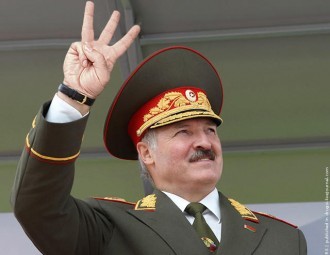Official Minsk plans to increase its defence budget in the context of military optimisation

Amid growing external threats, Belarus will focus on strengthening the army’s potential and reinforcing the loyalty of the military.
Amid languishing public resources the Belarusian government hopes to raise additional funds from selling obsolete weapons and equipment. However, the authorities are unlikely to afford the full modernisation of the Belarusian Armed Forces without Russia’s aid.
On February 19th, while speaking to the Armed Forces commanders, the President praised the work of the Defence Ministry and noted that the ministry had elaborated the Defence Plan for Belarus. The meeting took place in the view of February 23rd celebrations, Defender of the Fatherland Day, which Belarus celebrated since the Soviet era.
Military analysts believe the Belarusian army is one of the most efficient in the region: it is equipped with Soviet-era arms and holds regular combat readiness exercises. After the collapse of the Soviet Union, the Belarusian Military District was the most militarised in the region. However, Belarus’ Armed Forces arsenal has not been modernised since then. In addition, Belarusian military personnel does not believe in the repetition of the Crimean scenario in Belarus, which, perhaps, corresponds to the moods of the Ukrainian soldiers during the first weeks of the Russian invasion.
The president spoke about the need to strengthen the Belarusian army and modernise weapons through selling the outdated weapons and equipment. However, the funds raised from selling the outdated military equipment are unlikely to cover the army’s modernisation needs. The Belarusian authorities therefore are more likely to focus on strengthening their defence and special operations forces in order to cause "unacceptable damage to the aggressor".
President Lukashenka prompted military commanders to focus on studying “hybrid war” strategies based on the Ukrainian experience. In addition, he talked about the army’s readiness: “if hostilities take place (God forbid!), we’ll have to call over 100000 people to join the Territorial Army”.
President Lukashenka underscored that the state policy on military cooperation with Russia would remain unchanged, however with a reservation that “Belarus’ natural interests of sovereignty and independence should be taken into consideration”. The president also encouraged the military commanders to conduct independent military exercises – without Russia’s military participation.
Along with the usual harsh rhetoric regarding external threats “from the West”, President Lukashenka also talked about developing cooperation with NATO: “As a sovereign state, we are open to a constructive dialogue with NATO [based] on the principles of parity and transparency. We have many common issues, collaboration on which fully meets Belarus’ interests”. Amid rising tension between the Kremlin and NATO and regardless of Belarus’ participation in the NATO’s Partnership for Peace Programme, she is unlikely to develop cooperation with NATO, which would be contrary to Russia’s stance.
President Lukashenka also reassured his military staff, who were concerned about the possible ‘peacekeeping’ missions in southeastern Ukraine that he would never engage in “reckless, unnecessary and risky undertakings”.
Meanwhile, President Lukashenka repeated the Kremlin’s thesis that the UN and OSCE were unable to ensure global security effectively in the modern world: “organisations, such as the UN and OSCE are under the obvious influence of some states. And, honestly speaking, they are no longer able to ensure international security. They have demonstrated the inability to ensure the world’s security and to solve global problems and contemporary challenges”. It is worth noting that the Kremlin and Ukrainian separatists have criticised Kyiv’s initiative to place the UN peacekeeping forces in Ukraine.
In addition, the president spoke about ‘color revolutions’ and brought them into line with an open military invasion from the outside. To date, however, President Lukashenka has never used the army to resolve domestic political issues –internal troops and intelligence agencies have been fulfilling this task quite successfully.
Amid growing external threats, Belarus will focus on strengthening the army’s potential and reinforcing the loyalty of the military. However, due to Belarus’ limited resources, neither the military expenditure would increase significantly, nor the service personnel’s well-being would improve.
-
03.01
-
07.10
-
22.09
-
17.08
-
12.08
-
30.09








































